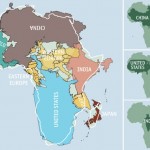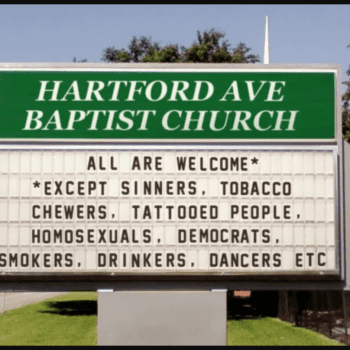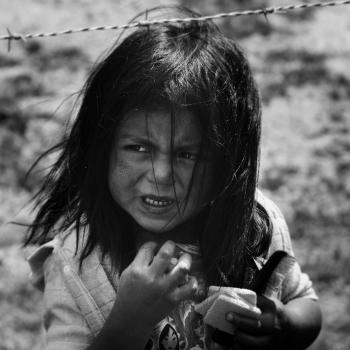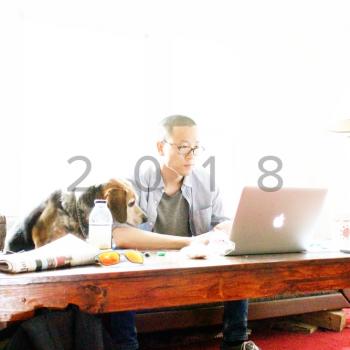By now you’ve probably heard of Rachel Dolezal, this morning she announced her resignation as the president of the Spokane, Washington NAACP, in the “best interest of the NAACP.” Rachel sparked a national debate regarding racial identity after being confronted on her own racial identification and questioned about her seemingly deceitful presentation. If I’m not mistaken, she’s also being accused of forging hate crimes against herself, lying about her adopted brother being her biological son, and misidentifying a black-male as her actual father.
The question, many are asking is, “Why would Rachel lie about the race she actually is?’” The better question is, “Is it possible to lie about being something that doesn’t exist?”
But before we go on we must remember/know a few things: 1) that race does not exist, it’s a social construct, not a biological factor, it’s a socio-political medieval European tool used to push a racist privileged agenda. 2) It’s one of many arbitrarily nonsensical ways of keeping a sect of society beneath another group of people. In other words, “blackness,” within our present day US context, is an ontological symbol in which points to the greater oppression experienced by oppressed persons, despite their racial identity. 3) The complexion of one’s skin does not necessarily mean that they have experienced greater, or less, oppression than someone else.
To say something is a social construction is not to say that it isn’t real. Money is a social construction. Trust me. It’s real.
— Eddie S. Glaude Jr. (@esglaude) June 16, 2015
Whether you’re LGBTQ, living in a heteronormative world; whether you’re a woman, living underneath misogynistic principles; whether you’re a physically abused child, trapped in an abusive familial system; whether you’re a poor white, fighting economic inequity; blackness is one of many ontological symbols in which points to the reality of the oppressed person’s experience. These experienced realities oppressed persons face, of course, are all different and possessing various outcomes to differing effects/levels, yet they allow for an affinity that can create intersectionality between various oppressed communities.
So hypothetically speaking, if Rachel has suffered through prolonged amounts of unjust maltreatment [racial or not] then she is oppressed. If she is oppressed, then she has experienced blackness, in the ontologically symbolic sense of the word.
“The focus on blackness does not mean that only blacks suffer as victims in a racist society, but that blackness is an ontological symbol and a visible reality which best describes what oppression means in America.”[1] – James Cone
This is why race is such an inanely complex and illogical construct. It divides people into various groups and causes these groups of oppressed persons to invert, turn against, and therefore oppress one another. By doing this one gains a temporary instantaneous sense of satisfaction at the cost of long-term damaging effects of self-inflicted oppression. Noam Chomsky describes the complexity of systemic oppression of the shrinking middle-class and, therefore, growing lower-class :
“Now that … workers are superfluous, what do you do with them? First of all, you have to make sure they don’t notice that society is unfair and try to change that, and the best way to distract them is to get them to hate and fear one another.”
If you’re confused, this does not mean you’re stupid, it just means you’re beginning to grasp the brokenness of our world. To speak of ontology as inseparable to the understanding of race, is to acknowledge the convoluted inanity of this historico-socio-cultural-political formation. Race, is nothing but an illusion of categorical fixity; it’s a means of coercing individuals into believing, and internalizing, a lie that because they are physically this then one’s identity must be that. I use the generality of pronouns, “this” and “that,” because the value of one’s “race” is entirely contingent upon one’s given context.
All of this to say: Yes, in short, if race does not exist, and it is an ontological symbol pointing to the individuals reality of experienced oppression, she can claim, truthfully, to be black. So then, you might ask, “If she can claim to be black then what’s the issue with her attempt to, literally, become black, identifying with the black-American community?”
Well, there’s a difference between identifying as one who is in solidarity with the black community, and identifying as an actual black person. The first is empowerment; the second is the co-opting of a conversation (i.e. disempowerment). Rachel, growing up white, did not endure the same type of individual and genealogical oppression that many times, but of course not all of the time, leads to social, political, and economic inequity, prohibiting one from the privilege of simply “working their way up the ladder.” This is why colorblindness is unhelpful and only perpetuates an already existent oppression. It ignores the reality and experiences in which acknowledging race has caused over the course of centuries.
“If blackness can simply be worn or performed, then every white woman with a weave and a cause, every white girl with a snap and a little attitude, can supplant the lived experiences of what it is to become a black woman: the journey of discrimination, the camaraderie of sisterhood, discovering the deep sense of responsibility and weight of the world, and ultimately finding the inner strength and acceptance that can only be built through struggle.”[1]
Furthermore, when a privileged person transitions from their community into an oppressed person’s community they, usually, do so to take, as opposed to giving more social, political, and economic power, from/to those that possess very little [e.g. gentrification, colonization, etc.]. Privileged persons are leveraging the oppressed person’s life to build their own platform. This is exactly how I interpreted what Rachel’s brother Izaiah Dolezal, was leveling against his sister, “She’s only been African-American when it benefited her. She hasn’t been through all the struggles. She’s only been African-American the last few years,”[2] After centuries of “humiliation, abuse, and deprivation” inflicted upon the non-privileged- American, fear of the conversation being co-opted, as it has many times before, is an absolutely legitimate, and necessary, caution to have.
7- I deeply respect American sentimentality, the way one respects a wounded hippo. You must keep an eye on it, for you know it is deadly.
— Teju Cole (@tejucole) March 8, 2012
This is why I believe it is generally and destructively unhelpful to argue who is more, or less, oppressed, between individuals. For instance, to be a poor white person and simultaneously racist is counterintuitive; you’re inadvertently reinforcing the same exact system that is using various illusions in order to oppress you and your loved ones. You’ve been lead to buy into these social constructs in which negate intersectionality and perpetuate a separatistic society.
The issue is that many, privileged persons, do not want to lose their “white identity.” Their goal is simply to assuage their guilt by “getting fat off of the starvation of others.”[3] The banality of the conscience of the white supremacist is inexhaustibly absurd, being seen through indifference, police-brutality, and the industrialization of white sentimentality [i.e. The Westernized Church].
Needless to say, it’s then disconcerting to hear that a white woman has been given an influential position for the NAACP, labeled an expert on African American Studies, and therefore handed a voice on the future existence of police-brutality and racial [in]equality. Yes, even if they’ve gone into it with amazing intentions, history has shown, shit will still go very wrong, as Reinhold Niebuhr explains the conditional generosity of the white progressive:
“For his generosity is at once a display of his power and an expression of his pity. His generous impulses freeze within him if his power is challenged or his generosities are accepted without grateful humility.”[4] – Reinhold Niebuhr
This isn’t a post for or against Rachel. It’s hard enough to analyze myself, let alone someone I’ve never met. Acknowledging this, is it not fair and necessary to ask or wonder, “What if she is, in fact, one of the good guys? What if she is simply being used, as a means to perpetuate, segregate, and continue racial division being used as a tool to leverage the gap between whites and blacks? What if she was being pathologically demonized to halt the progression of racial, economical, and social equality? Is not racial progression supposedly what the NAACP [the National Association for the Advancement of Colored People] is all about?
Again, my knowledge and perspective on these claims and interpretations against, or for, Rachel are limited. Maybe she has benefited off of other’s oppression, but maybe instead she has used her privilege to stand for the rights and humanity of the oppressed. Maybe the better question none of us are asking is, “What good does ripping her apart do for the oppressed persons community…?”
“It’s worth remembering that the wedge that splits the wood is what ultimately takes the brunt of the blows from the hammer.” – Jeff Yang
[1] Alicia Walters, “I became a black woman in Spokane. But, Rachel Dolezal, I was a black girl first”
[3] James Cone said this in Black Theology of Liberation
[4] Niebuhr, Reinhold. Moral Man and Immoral Society: A Study in Ethics and Politics. New York: Scribner, 1960. Print.












